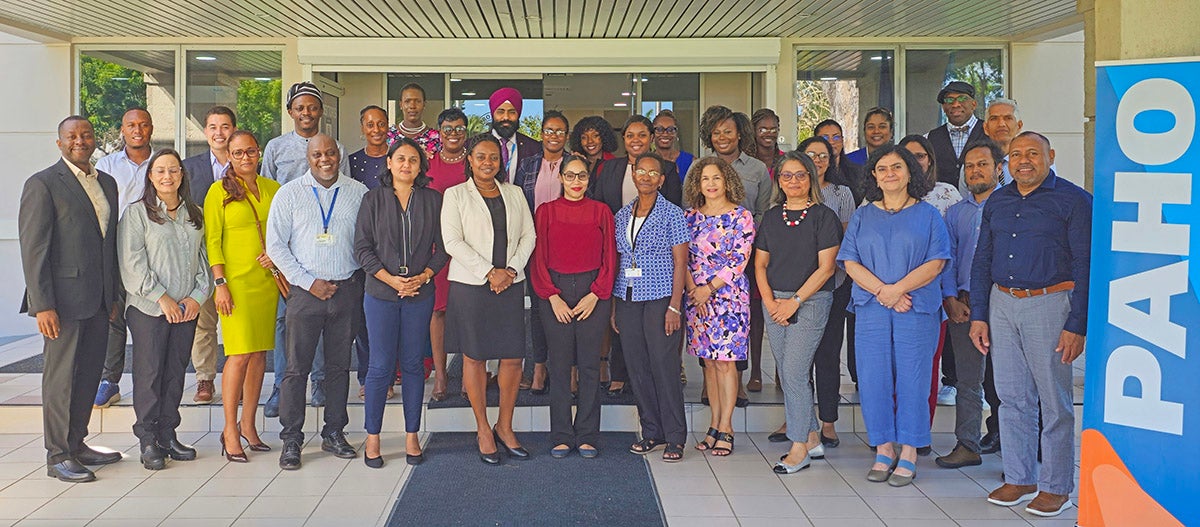
Bridgetown, Barbados, 26 November 2024 (PAHO/WHO) - Public health experts from across the Caribbean gathered at the Pan American Health Organization/World Health Organization (PAHO/WHO) Barbados Office from November 26th to 28th, to receive training developed to enhance their ability to detect, respond to, and prevent public health emergencies.
During the opening ceremony of the collaborative workshop, ‘Subregional Training on Early Action Review (EAR) under the International Health Regulations (IHR) (2005) Monitoring and Evaluation Framework’, PAHO/WHO Office for Barbados and the Eastern Caribbean Countries (ECC), Dr. Amalia Del Riego, welcomed the gathering and pledged PAHO’s continued support to the Caribbean region’s health professionals.
Tamara Mancero, PAHO Advisor for International Health Regulations, strongly recommends the SIDS in the Caribbean include metrics to assess the timeliness for detection, notification and response to outbreaks within the national surveillance systems. She indicated these performance indicators reviewed during this training should improve the quality and opportunity for decision-making and contribute to the implementation of the International Health Regulations (2005) core capacities in the Caribbean.
Dr. Landry Ndriko Mayigane, Acting Unit Head, Country Simulation Exercises and Reviews Unit, WHO Health Emergency Programme, stressed the global impact of EARs. He said implementing Early Action Reviews (EARs) is crucial for preventing local outbreaks from escalating into global pandemics, adding that by employing the 7-1-7 metric to assess vigilance, planning, and responsiveness, countries can significantly enhance their preparedness and response capabilities. Dr. Mayigane remarked that this proactive approach ensures that lessons are learned and applied in real-time, ultimately safeguarding millions of lives.
The workshop was hosted in collaboration with the Caribbean Public Health Agency (CARPHA) and Resolve to Save Lives.
Participants from Antigua and Barbuda, The Bahamas, Barbados, Belize, British Virgin Islands, Dominica, Grenada, Guyana, St. Lucia, St. Vincent and the Grenadines, Suriname, and Trinidad and Tobago, partnered to build their capacities in EAR bottleneck analysis, learn how to integrate this tool into national health systems, and explore ways to improve pandemic preparedness through recently approved Pandemic Fund projects.
The group of approximately 30 professionals engaged in breakout sessions to take part in discussions and scenarios, which allowed them to implement strategies acquired during the workshop. During the final day, the Ministries of Health led presentations, overviewed national surveillance and the response program, incorporating their newly acquired skills and approaches.




